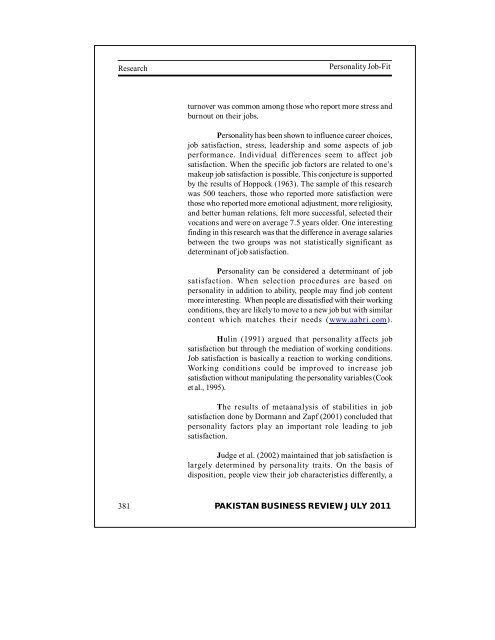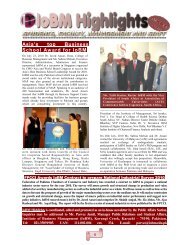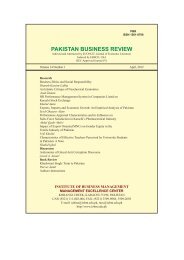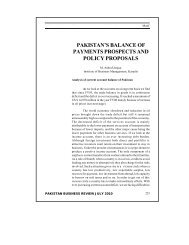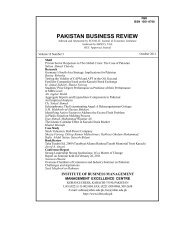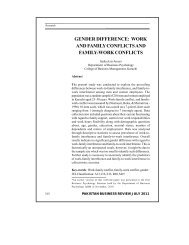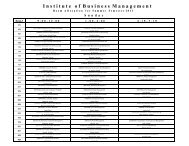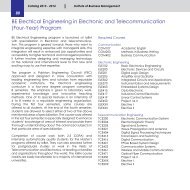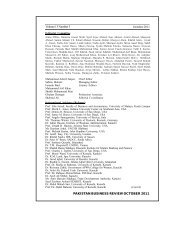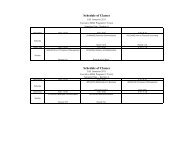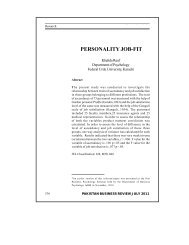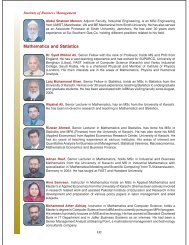PAKISTAN BUSINESS REVIEW - Institute of Business Management
PAKISTAN BUSINESS REVIEW - Institute of Business Management
PAKISTAN BUSINESS REVIEW - Institute of Business Management
Create successful ePaper yourself
Turn your PDF publications into a flip-book with our unique Google optimized e-Paper software.
Research<br />
Personality Job-Fit<br />
turnover was common among those who report more stress and<br />
burnout on their jobs.<br />
Personality has been shown to influence career choices,<br />
job satisfaction, stress, leadership and some aspects <strong>of</strong> job<br />
performance. Individual differences seem to affect job<br />
satisfaction. When the specific job factors are related to one’s<br />
makeup job satisfaction is possible. This conjecture is supported<br />
by the results <strong>of</strong> Hoppock (1963). The sample <strong>of</strong> this research<br />
was 500 teachers, those who reported more satisfaction were<br />
those who reported more emotional adjustment, more religiosity,<br />
and better human relations, felt more successful, selected their<br />
vocations and were on average 7.5 years older. One interesting<br />
finding in this research was that the difference in average salaries<br />
between the two groups was not statistically significant as<br />
determinant <strong>of</strong> job satisfaction.<br />
Personality can be considered a determinant <strong>of</strong> job<br />
satisfaction. When selection procedures are based on<br />
personality in addition to ability, people may find job content<br />
more interesting. When people are dissatisfied with their working<br />
conditions, they are likely to move to a new job but with similar<br />
content which matches their needs (www.aabri.com).<br />
Hulin (1991) argued that personality affects job<br />
satisfaction but through the mediation <strong>of</strong> working conditions.<br />
Job satisfaction is basically a reaction to working conditions.<br />
Working conditions could be improved to increase job<br />
satisfaction without manipulating the personality variables (Cook<br />
et al., 1995).<br />
The results <strong>of</strong> metaanalysis <strong>of</strong> stabilities in job<br />
satisfaction done by Dormann and Zapf (2001) concluded that<br />
personality factors play an important role leading to job<br />
satisfaction.<br />
Judge et al. (2002) maintained that job satisfaction is<br />
largely determined by personality traits. On the basis <strong>of</strong><br />
disposition, people view their job characteristics differently, a<br />
381<br />
<strong>PAKISTAN</strong> <strong>BUSINESS</strong> <strong>REVIEW</strong> JULY 2011


